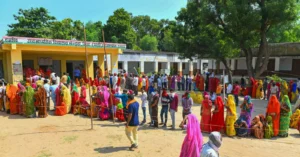What is Operation Sindoor ? Significance behind the name

Operation Sindoor
Operation Sindoor was a military operation conducted by the Indian Armed Forces on May 7, 2025, targeting nine terrorist infrastructure sites in Pakistan and Pakistan-occupied Jammu and Kashmir (PoJK). It was a retaliatory response to the Pahalgam terror attack on April 22, 2025, which killed 26 civilians, mostly tourists, in Jammu and Kashmir’s Baisaran valley. The operation aimed to dismantle terror camps linked to groups like Jaish-e-Mohammed (JeM), Lashkar-e-Taiba (LeT), and Hizbul Mujahideen, which India accused Pakistan of supporting.
Key Details:
Execution: The operation involved precision strikes by the Indian Army, Navy, and Air Force, using advanced weapons like SCALP cruise missiles, HAMMER smart bombs, and loitering munitions. Strikes targeted four sites in Pakistan (e.g., Markaz Subhan Allah in Bahawalpur, Markaz Taiba in Muridke) and five in PoJK (e.g., Syedna Bilal camp in Muzaffarabad). The operation lasted 25 minutes, from 1:05 AM to 1:30 AM, and was described as “focused, measured, and non-escalatory,” avoiding Pakistani military facilities.
Outcome: India claimed the strikes destroyed key terror hubs, killed at least 70 terrorists, including 10 family members and 4 aides of JeM chief Masood Azhar, and disrupted planning centers linked to attacks like Pulwama (2019). Pakistan reported civilian casualties, including 12 deaths, and retaliated with cross-border shelling in Jammu and Kashmir, killing civilians.
Name Significance: Personally codenamed by Prime Minister Narendra Modi, “Sindoor” (vermilion, a red powder symbolizing marriage in Hindu culture) was chosen to honor the widows of the Pahalgam attack, where terrorists singled out and killed Hindu and non-Muslim men, leaving their wives bereaved. The name reflects both the grief of the victims’ families and India’s resolve to deliver justice.
Context: The Pahalgam attack, blamed on Pakistan-backed groups, sparked national outrage due to its brutality, targeting tourists and identifying victims by religion. India’s response was framed as a strategic shift, signaling zero tolerance for terrorism and challenging Pakistan’s use of terrorism as a proxy. The operation was widely supported across India’s political spectrum.
Strategic Implications:
Operation Sindoor marked a significant escalation compared to previous Indian operations like Balakot (2019), with deeper strikes into Pakistan’s Punjab province and a broader target set. It aimed to reinstate deterrence against Pakistan-sponsored terrorism and establish a doctrine of conventional military response to terror attacks, reducing Pakistan’s ability to hide behind nuclear threats.
Pakistan denied involvement in the Pahalgam attack, called the strikes an “act of war,” and vowed retaliation, escalating tensions. The operation also prompted international reactions, with the U.S. urging de-escalation and offering mediation, while Turkey expressed solidarity with Pakistan. This operation underscores India’s evolving counter-terrorism strategy, blending symbolic messaging with military precision, while raising risks of further conflict with Pakistan.





